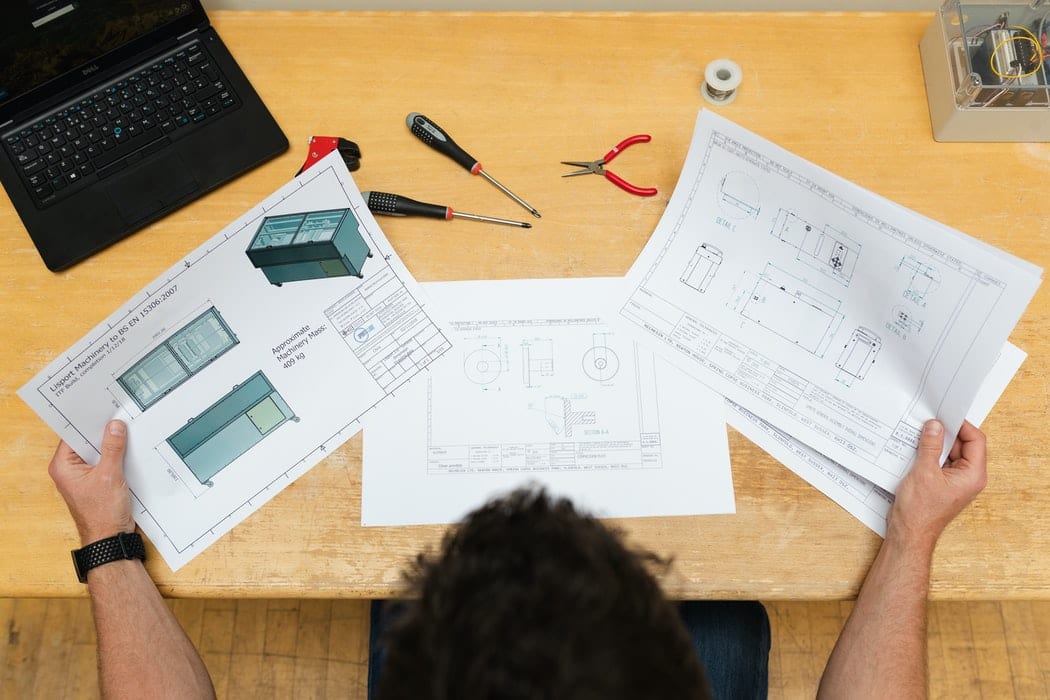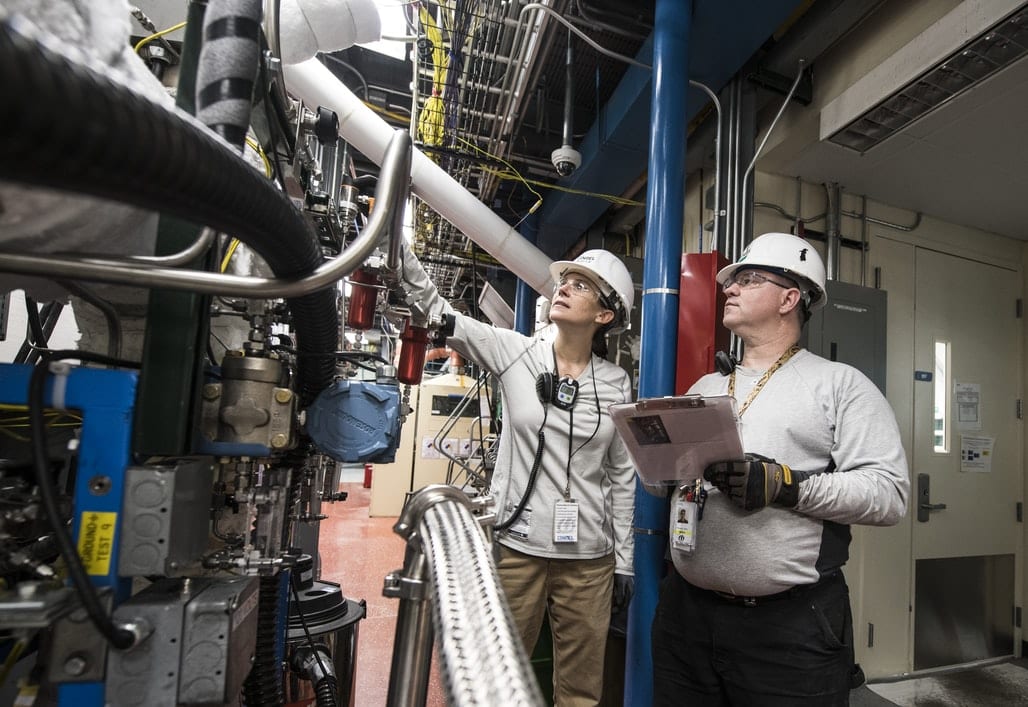Welcome to Part 2 of our series “Preparing for a Career in Controls Engineering.” Two of Wunderlich-Malec’s senior engineers share their experience about what it takes to succeed not only as a technical contributor, but as someone who is an important contributor to an organization as a whole.

The goal of this series is to help you, an entry-level engineer, to 1) secure an interview at your preferred company, and 2) excel in the interview once you are in front of the hiring manager.
Any of the recommendations by our engineers in Part 1 and Part 2 can be added to your resume either in the “skills” area or a separate segment identifying the personal enrichment activities you’ve participated in that prepares you for a career in Controls Engineering.
If you are interested in getting on the waitlist for access to Wunderlich-Malec’s “Introduction To Controls Engineering,” you may contact Denise at denise.ward@wmeng.com. This introductory information is expected to be available by the end of October 2020.
Shelby Munds is the Engineering Manager for our Longmont, CO. Shelby has been with Wunderlich-Malec for over 10 years. Our Longmont office specializes in rotational machinery controls.
Shelby:
I’m almost 27 years into a career that has taken me through several companies and locations in at least two separate industries (or fields within overlapping industries). I’ve traveled extensively in the United States and internationally, plying my trade and constantly working to develop and enhance my engineering proficiency … mostly successes, but of course some setbacks, and learning from it all. If I could pass on one piece of advice to young engineers just entering the profession, it’s that there’s a lot more to being an Engineer than just engineering:
Expand your breadth of knowledge and expertise within your discipline.
My first couple of jobs after college were in positions exposing me to a wide variety of engineering roles. Within my first few years of the profession, I worked in both electric utilities and petrochemical process plants; traditional electrical (power) and instrumentation and controls (I&C) fields; maintenance and operations; and project design for both large capital and smaller maintenance scopes. I credit this variety with whatever degree of professional success I’ve had. Many may not have this kind of opportunity, but I would encourage all engineers to look for opportunities within their roles to expand their breadth of expertise. Don’t forget how motor controls are designed and work. Learn or stay abreast of applicable codes and standards (API, ASTM, IEC, ISO, NEC, UL, etc.). Learn about the technology, materials, construction, and limitations of the sensors or controls you deploy. Always work to avoid being typecast as just a software engineer or just a cabinet designer.
Work towards PE licensure (Professional Engineer) as early as you can.
Licensure has never been a requirement of any job I’ve held, and it’s only rarely been necessary in the course of my work. However, it is sometimes a requirement in the requests for bid/proposal that client’s issue. With respect to your career, it can undoubtedly open doors and increase your career earning potential. I’ve seen statistics that indicate less than 25% of engineers are licensed, and a large percentage of those are in the civil/structural disciplines. In effect, with licensure, you automatically position yourself in the top quartile of the profession overall and even higher for disciplines other than civil. Per the old saying, it’s better to have it and not need it than to need it and not have it.

State requirements vary, but you must typically have 4~5 years of relevant work experience before applying for licensure. However, I understand that many states have dissociated the exam from the experience. While licensure still requires all prerequisites be met, you may be able to take the exam sooner. Whenever you are eligible, I highly encourage all engineers to take the exam as soon after college as they are able. The longer you wait, and as career and family grow, the more difficult and stressful the preparation and exam will be.
Learn as much as you can from disciplines other than your own.
Many university engineering departments require coursework from other disciplines (engineering electives). For example, I took several basic ME and ChemE courses in pursuit of my Electrical Engineering degree. If you did not have or take this opportunity, it’s never too late. Learn as much as you can from colleagues or utilize online resources to gain at least a basic knowledge of fundamental principles from other disciplines. Also, branch out from purely technical arenas into business, regulation, etc.
Learn the businesses, markets, and technology of your customers.
It’s impossible to become an expert in every field but take every opportunity to learn what your customers do and how they do it. What conditions are favorable to their business, and what conditions are threatening? How does a refinery process crude oil into diesel and gasoline? What are the environmental concerns in a chemical plant’s operation? How do FDA regulations affect food/beverage/pharma customers? The more knowledge you have on these seemingly tertiary (to you) topics, the more credibility you will gain with your customers.
Develop or maintain your writing skills and public speaking.
On a visit to one university before I chose my eventual college destination, I met with an engineering department head. He asked (paraphrasing), “What are your favorite subjects and why?” My response, as I think would be typical of most any prospective engineering student, was math and sciences. He quickly admonished me not to disregard English, stating that “Engineers write reports, you know?” Yes, I know, and knew then, and I certainly don’t ignore the importance or written and oral communication for engineers. In fact, I read technical documents, manuals, and emails by/from engineers with a somewhat critical eye. Focus on the quality of your writing and speech, specifically when the audience or context warrants.

Whether you realize it or not, your grammar, punctuation, and vocabulary are sending subtle messages to the reader or listener about your engineering competence.
Get in the field and get your hands dirty.
No amount of calculating, drawing, and programming on your computer will properly develop your overall engineering skill. Take or beg for every opportunity you can to get in the field. Every controls engineer should know how to use a multimeter and calibrator to troubleshoot circuits and control loops. I’ve watched experienced engineers fumble with a meter and not understand how to use voltage / current / resistance measurements to troubleshoot wiring errors. Don’t be that engineer. Even though you may rarely need the skill, learn how to solder (neatly)—It’s not difficult, but there can be some artistry to it. Make sure you know basic wiring tools (cutters, strippers, crimpers & dies, etc.) and how to use them to wire a cabinet. If you can, learn how to run and swage tubing.

As noted before, expand your toolset outside your discipline. For example, electrical/controls engineers should also understand basic mechanical principles, tools, and processes; piping flow and pressure drop; etc. Ultimately, make sure you can build and troubleshoot the control systems you design, or to which you contribute, including scope that is not exclusively yours.
Wes Herold is a Sr. Project Manager/Controls Engineer in our Eden Prairie, MN office. Wes has been with Wunderlich-Malec for over 13 years.
Wes:
I have over 16 years of experience in the controls industry and I can honestly say I have never been bored or not challenged. Every project large or small is different from the one before it. Add in the different phases of a project and you will never do the same thing twice. There isn’t much out there now days that doesn’t have some sort of controls and automation tied to it, so the project work is endless!
Don’t get stuck in a Niche
The first project that I started with out of college was a large multi-year breakfast cereal plant expansion. I began with the electrical design, moved into PLC programming, then HMI programming (operator interface), and finally out into the field to commission the work that I had spent so much time working toward. Some engineers get comfortable or even stuck in a single role their entire career. I can’t imagine doing only hardware design or programming my entire career. This also pertains to industries as well. Try not to pigeonhole yourself in a single industry. Take opportunities presented to you to try other roles and volunteer to be challenged.
Don’t fall into the stereotype
I have worked with a ton of new people in this industry. It never fails on a project kickoff that someone will say that I’m ‘not your typical engineer’. I take this as a compliment, and I don’t mean anything negative about engineers. I have had to put effort into not falling into this stereotype. Being a great engineer is more than being good at math and computer science. To be a good engineer starts with communication. The best engineers I have worked with can communicate successfully with their co-workers, vendors, other disciplines and clients. Work on your communication skills, i.e. reading, writing, listening, speaking, etc. Sounds silly, but the majority of miscommunication that I have seen has been misreading emails. Seems like it wouldn’t be a difficult task, but it is very important.
2020 has gone virtual!
There has never been a better time to expand your knowledge with training courses as now! Almost anything you would ever need to learn is now on-demand virtual training. Use social platforms or senior engineers around you to provide relevant courses to take. The best part is that these are almost all free.

Working in the industry is different than when you were in school. School will teach you what you need to do first then you will produce on your own. Controls engineering is typically on the job training. Engineers need to be very self-sufficient and proactive by using the people, tools and materials around them to be successful.
Good luck on your interview!
For more information about careers at Wunderlich-Malec or to apply for open positions, visit our Careers page.
